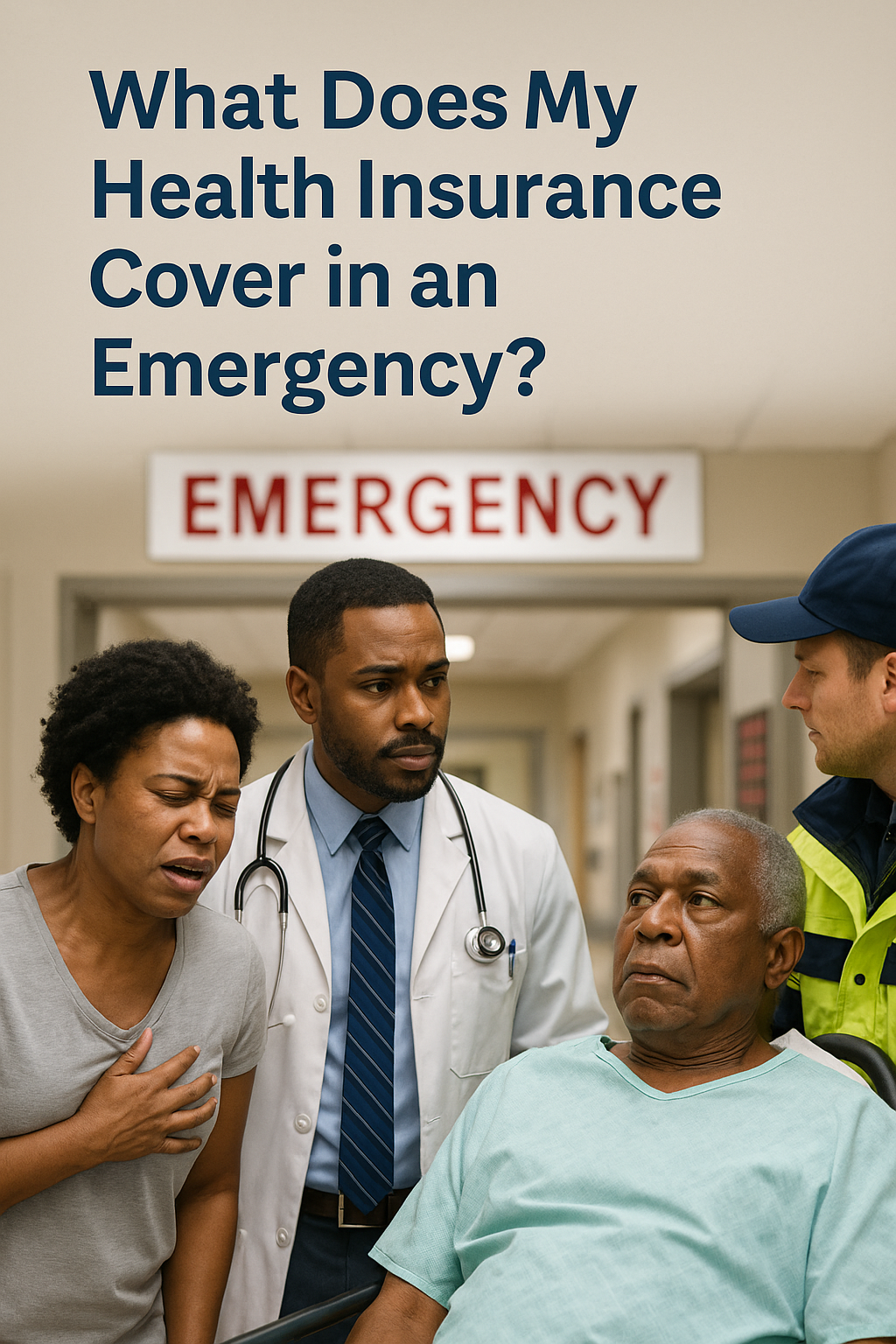When emergencies happen, the last thing you want to worry about is your health insurance coverage. Whether it’s a car accident, sudden chest pain, or a severe allergic reaction, knowing your benefits can make all the difference.
If you live in Houston—home to one of the largest medical centers in the world—it’s even more crucial to understand how your plan works during emergencies. This guide breaks down everything you need to know to stay protected when it matters most.
What Qualifies as a Medical Emergency?
A medical emergency is any situation where immediate care is needed to avoid serious jeopardy to your health. According to the ACA (Affordable Care Act), this includes:
- Severe pain or bleeding
- Difficulty breathing
- Sudden loss of consciousness
- Stroke or heart attack symptoms
- Serious head, neck, or spinal injuries
If you reasonably believe your life is at risk, go to the emergency room immediately. Health plans must cover emergency services even if the ER is out-of-network.
Emergency Coverage Basics in Most Health Plans
Most plans cover emergency care under federal law—but the extent of coverage can vary.
Here’s what’s typically included:
1. Emergency Room Visits
- Covered: ER visits for sudden illnesses or injuries.
- Not Covered: Non-urgent issues (e.g., minor colds).
- Example: If you fall and suspect a fracture, your ER visit is covered—even at an out-of-network hospital.
2. Ambulance Services
- Ground ambulance rides are usually covered.
- Air ambulances may have limited coverage or higher cost-sharing.
- Always check if preauthorization is required after the fact (some plans review retrospectively).
3. Urgent Care Centers
- If the condition is not life-threatening but requires attention, urgent care is often a lower-cost alternative.
- Coverage depends on your plan’s network. Many cover out-of-network urgent care only in emergencies.
4. Emergency Prescription Medications
- If prescribed at the ER (e.g., antibiotics, EpiPen), insurance typically covers the first fill.
- Follow-up medications may require using network pharmacies for continued coverage.
What If You’re Out of Network?
This is where confusion—and unexpected bills—can arise.
Thanks to the No Surprises Act, you are protected when:
- Receiving emergency services at an out-of-network hospital
- Being treated by out-of-network doctors at an in-network hospital
Your out-of-pocket costs must match in-network rates for emergencies. However, follow-up care may not be protected, so always confirm before scheduling additional visits.
Know Before You Go: Tips to Avoid Emergency Billing Shocks
Here’s how to prepare before an emergency ever happens:
- Save your insurer’s 24/7 emergency number in your phone
- Understand your deductible and out-of-pocket maximums
- Ask your insurer if ambulance or ER services require later authorization
- Identify in-network urgent care centers near your home or work
Many Houstonians are surprised by ER bills—not because of the emergency itself, but due to out-of-network anesthesiologists or specialists. Always review your Explanation of Benefits (EOB) after an ER visit.
How Different Plans Compare Emergency Coverage
Here’s a quick breakdown:
| Plan Type | Emergency Coverage | Urgent Care | Out-of-Network Protection |
|---|---|---|---|
| HMO | Covered only at ER | In-network only | Emergency services protected |
| PPO | Covered everywhere | Covered | Higher flexibility |
| EPO | Covered only in-network | In-network only | Emergencies covered |
| HDHP | Covered after deductible | Covered | Can use HSA funds |
Example: A family with an HMO from a local Houston provider may find emergency care covered at Memorial Hermann ER but not at a private urgent care clinic unless it’s life-threatening.
Why Choosing the Right Plan Matters
If you’re a parent, senior, or someone with chronic conditions, your risk of needing emergency care is higher.
That’s why it’s important to speak with a houston health insurance agent who understands local providers and hospital networks. They can help you choose a plan that:
- Has strong emergency coverage
- Minimizes out-of-pocket costs
- Includes local hospitals in-network
- Offers telehealth and urgent care support
Real-World Scenario
Marla, a 62-year-old from Sugar Land, had a sudden heart issue. She was rushed to a nearby ER by ambulance. Her plan covered the ER visit, but the out-of-network cardiologist billed her $1,800.
Luckily, the No Surprises Act forced a revised bill. But the process was confusing and time-consuming.
If she had worked with a Houston health insurance expert, she might’ve avoided the stress.
Conclusion
Emergencies are unpredictable, but your health insurance houston coverage shouldn’t be.
Make sure your plan:
- Covers ER and ambulance services fairly
- Complies with federal emergency care regulations
- Protects you from surprise out-of-network bills
When in doubt, speak with a houston health insurance agent who can help you compare policies side by side.
Are you confident your plan will protect you in an emergency—or will you be left holding the bill? Share your thoughts or questions below!
FAQs: Emergency Health Insurance Coverage
1. Do all health plans cover emergency care?
Yes. Under the ACA, all marketplace plans must cover emergency services—even if the provider is out-of-network.
2. What if I go to the ER and don’t get admitted?
You’re still covered for the ER visit. Admission is not required for emergency benefits to apply.
3. Are air ambulances always covered?
Not always. Many plans only cover air transport when medically necessary. Coverage varies, and bills can be high, so review your policy details.
4. Can I get emergency care while traveling out of state?
Yes. All health insurance plans must provide coverage for true emergencies—regardless of location in the U.S.
5. What’s the difference between urgent care and emergency room?
Urgent care is for non-life-threatening issues (e.g., flu, minor injuries), while the ER is for severe, sudden, or life-threatening events. Urgent care is usually cheaper.

